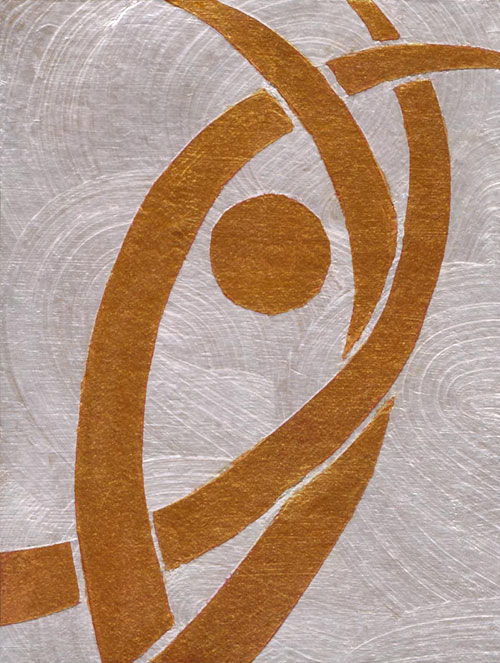
For What Binds Us © Jan L. Richardson
Reading from the Gospels, Year A, Proper 18/Ordinary 23/Pentecost +12: Matthew 18.15-20
If you have arrived here via The Text This Week, welcome! For my new reflection on this passage, please visit Where Two, Where Three.
Writing this, I’m sitting on the porch of a house on an island off Savannah, Georgia. Inside the house are the women with whom I spend each Labor Day weekend. From time to time I can hear their voices from where I sit; they are in the kitchen fixing dinner, or watching the game on TV, or talking at the table. These women are some of my closest friends from seminary. I have loved them nearly half my life. The seven of us are scattered across the Southeast: Florida, Georgia, Tennessee, North and South Carolina. We cross paths rarely during the rest of the year, but, in a tradition that began while we were still in school nearly two decades ago, we gather annually for several days of talking and eating and talking and eating and reading and napping and eating and did I mention talking?
Each of us is engaged in some kind of ministry. Most of us serve in settings beyond the local church, but all of us are connected with a congregation. And so, whenever we’re together, much of our talking has to do with church, and with all that comes from being part of a community still learning to be the body of Christ. Our stories reveal our awareness of the possibilities and painfulness that come with those relationships. We know how these communities can both call forth and stir up all that we are capable of as humans; we have seen the glory and the gore that come in attempting to be the church.
In our gospel lection for this Sunday, Jesus speaks to the challenge and the wonder of being in community. He recognizes that being his follower, being part of his body, will not relieve us of brokenness. Jesus is clear that being Christian doesn’t mean avoiding conflict, and that discord should not be allowed to fester and infect the entire body. He lays out a plan that requires his followers to engage a brother or sister who has done harm. His plan is one that seeks to preserve the dignity of the one perceived to have done wrong and to restore his or her relationship with the community.
Jesus’ blueprint for dealing with conflict is an ambitious one. It places a lot of trust in a church’s ability to discern what constitutes a sin and to deal with one another in ways that are both forthright and loving. I appreciate that he thought his followers could be this mature.
We Christians haven’t always been so good at this. In the presence of brokenness among the body, we have often either avoided making a direct response, or we have inflicted punishment that precludes ongoing relationship.
To engage one another in the way that Jesus describes in our gospel lection poses challenges on several fronts, not least of which is that we don’t always agree on what constitutes a sin. For another, we each have our own sins to reckon with, and times when we act out of our brokenness rather than our lovingness. It’s often so much easier to point toward what we see as sinful in another’s life than to deal with the ways that we ourselves bring harm to the body of Christ. Jesus knows this, too. It wasn’t so many chapters ago that he said, “Why do you see the speck in your neighbor’s eye, but do not notice the log in your own eye?” (Matthew 7.3)
Dealing with the sources of conflict in the church requires such profound humility on our part. We find this kind of humility in this story of Abba Moses, a desert father who spent much of his earlier life as a robber:
A brother at Scetis committed a fault. A council was called to which Abba Moses was invited, but he refused to go to it. Then the priest sent someone to say to him, ‘Come, for everyone is waiting for you.’ So he got up and went. He took a leaking jug, filled it with water and carried it with him. The others came out to meet him and said to him, ‘What is this, Father?’ The old man said to them, ‘My sins run out behind me, and I do not see them, and today I am coming to judge the errors of another.’ When they heard that they said no more to the brother but forgave him. (Benedicta Ward, The Sayings of the Desert Fathers.)
Being people of humility and forgiveness doesn’t mean doing away with discernment; after all, Abba Moses also cautioned, “Do not put confidence in him who does wrong to his neighbour, do not rejoice with him who injures his neighbour.” The health of the community requires us to be vigilant about rooting out the sources of harm. Yet Christ calls us to do so with a spirit that acknowledges our own brokenness and shortcomings and seeks to restore relationships wherever possible.
Engaging one another around the most difficult challenges of living together means that we have to know each other. It compels us to see one another with a clarity by which we not only recognize one another’s shortcomings but also know each other’s stories. This clarity grows elusive in a culture where face-to-face connections are becoming more difficult to form and maintain. It requires effort and intention to seek and sustain such seeing. My days with the women of this Labor Day group remind me how much the effort is worth. These women call me to remember what is possible among people who know one another this well, who know the questions to ask, who know how to challenge and sustain and accompany and love one another into being.
Jesus recognized the power of this kind of knowing. For all the challenges of conflict in a community, the power of concord is stronger. “Truly I tell you,” Jesus goes on to say in this passage, “if two of you agree on earth about anything you ask, it will be done for you by my Father in heaven. For where two or three are gathered in my name, I am there among them.” Where we find a place of connection amid conflict, where we gather in the name of the one who calls us to be his body, where we give ourselves to knowing one another: that is not only astounding, it is a miracle that moves heaven and earth.
Jesus underscores this by telling his followers what he has recently told Peter: that what they bind on earth will be bound in heaven, and what they loose on earth will be loosed in heaven. Jesus’ phrase about binding and loosing come from the rabbinic tradition, in which rabbis had the power to discern whether a questionable action would be permitted under the law. Yet in the context of this passage about our life together as followers of Christ, his words about binding and loosing prompt me to ponder what connects us, those threads that seem so strong and slack by turns. I think of Jane Hirshfield’s poem “For What Binds Us,” how she describes the scars that grow from our loving of one another, how those scars become cords that create “a single fabric that nothing can tear or mend.”
So, on this September day, what binds you? What holds you together with others? What do you fashion from the scars you carry? What do you long for in your relationships? What are you willing to do to find or create it? Who can help?
In your binding and loosing, in the conflict and concord that come in your loving: blessings.
[To use the “For What Binds Us” image, please visit this page at janrichardsonimages.com. Your use of janrichardsonimages.com helps make the ministry of The Painted Prayerbook possible. Thank you!]

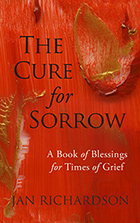
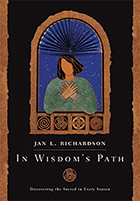
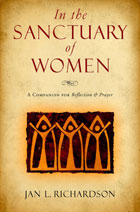
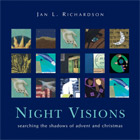
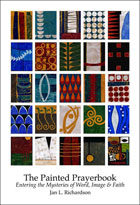
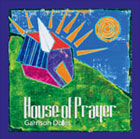
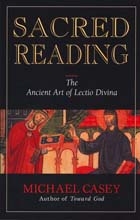
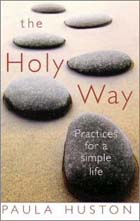
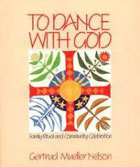
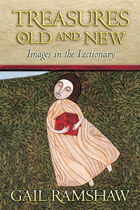
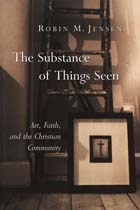
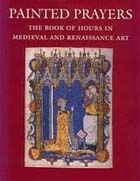
August 31, 2008 at 10:12 PM |
For me, the power of knowing each other’s stories has transformed relationships. There have been people in my life who I didn’t even like who I now love and respect thanks to hearing their stories. Something in the act of sharing allows me to see Christ in them in a way that would have otherwise been obscured without their conscious choice to be transparent.